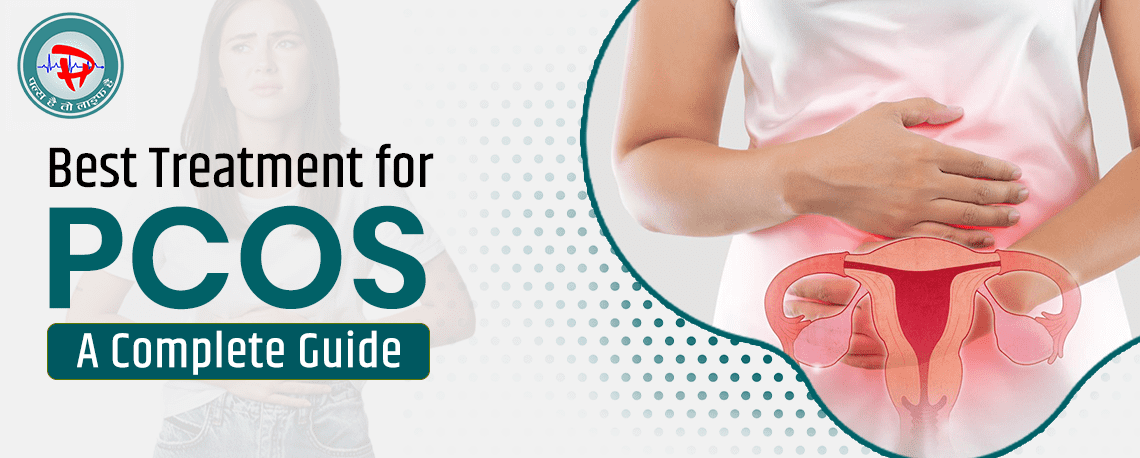Polycystic Ovary Syndrome (PCOS) is a common hormonal disorder that affects many women of reproductive age. Understanding PCOS and its treatments is crucial for managing symptoms and improving overall health. This blog will explore the meaning of PCOS, the best treatment for PCOS available, and the factors influencing treatment effectiveness.
What is the meaning of PCOS?
PCOS stands for Polycystic Ovary Syndrome. It’s a condition where a woman’s ovaries produce an abnormal amount of androgens. This hormone imbalance can cause various symptoms, including irregular menstrual cycles, difficulty getting pregnant, excessive hair growth, acne, and weight gain. The name “polycystic” refers to the many small cysts that form in the ovaries, although not everyone with PCOS will have these cysts.
What are the best treatments for PCOS?
There is no one-size-fits-all treatment for PCOS, but a combination of lifestyle changes, medications, and sometimes surgical procedures can effectively manage the condition. Here are some of the most common and effective treatments:
Lifestyle Changes
- Healthy Diet: Eating a balanced diet rich in whole foods, such as fruits, vegetables, lean proteins, and whole grains, can help manage PCOS symptoms. Reducing the intake of processed foods and sugars is also beneficial.
- Regular Exercise: Regular physical activity can help with weight management and improve insulin sensitivity, which are important in managing PCOS.
- Weight Management: For those who are overweight, even a modest weight loss of 5-10% can significantly improve symptoms.
Medications
- Birth Control Pills: These help regulate menstrual cycles, reduce androgen levels, and clear up acne.
- Metformin: This medication improves insulin resistance and can help with weight loss.
- Anti-Androgen Medications: These medications reduce hair growth and acne by blocking the effects of androgens.
Surgical Options
- Ovarian Drilling: A laparoscopic procedure that can trigger ovulation by making small holes in the ovaries.
These all treatments are provided by Pulse Hospital known as the multispeciality hospital in Kotputli.
Is PCOS treatment dependent on a few factors?
Yes, the best treatment for PCOS can depend on various individual factors, including:
- Age: Younger women may focus on managing symptoms and regulating menstrual cycles, while those trying to conceive may require fertility treatments.
- Severity of Symptoms: Those with more severe symptoms may need a combination of treatments.
- Other Health Conditions: The presence of conditions like diabetes or heart disease can influence the treatment plan.
- Lifestyle and Preferences: Personal preferences and lifestyle choices also play a significant role in determining the best treatment approach.
Causes of PCOS
The exact cause of PCOS is unknown, but several factors may contribute to its development:
- Genetics: PCOS often runs in families, suggesting a genetic link.
- Insulin Resistance: Many women with PCOS have insulin resistance, leading to higher insulin levels that can increase androgen production.
- Inflammation: Chronic low-grade inflammation is common in women with PCOS, contributing to increased androgen levels.
When to See a Doctor?
It’s important to consult a healthcare provider if you experience any of the following:
- Irregular or missed periods
- Difficulty getting pregnant
- Excessive hair growth on the face or body
- Severe acne or oily skin
- Sudden weight gain
Early diagnosis and best treatment for PCOS can help manage symptoms and prevent long-term complications such as type 2 diabetes, heart disease, and endometrial cancer.
Conclusion
PCOS is a complex condition that requires a multifaceted approach to treatment. By understanding the best treatments available and the factors that influence them, women with PCOS can take proactive steps to manage their symptoms and improve their quality of life. Always consult with a healthcare provider best treatment for PCOS that suits your individual needs like Pulse Hospital in Kotputli.

